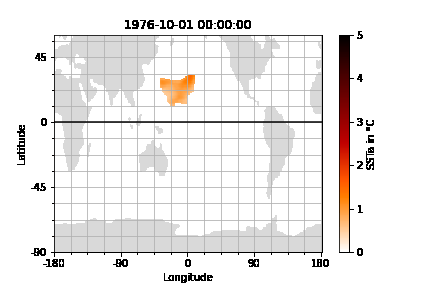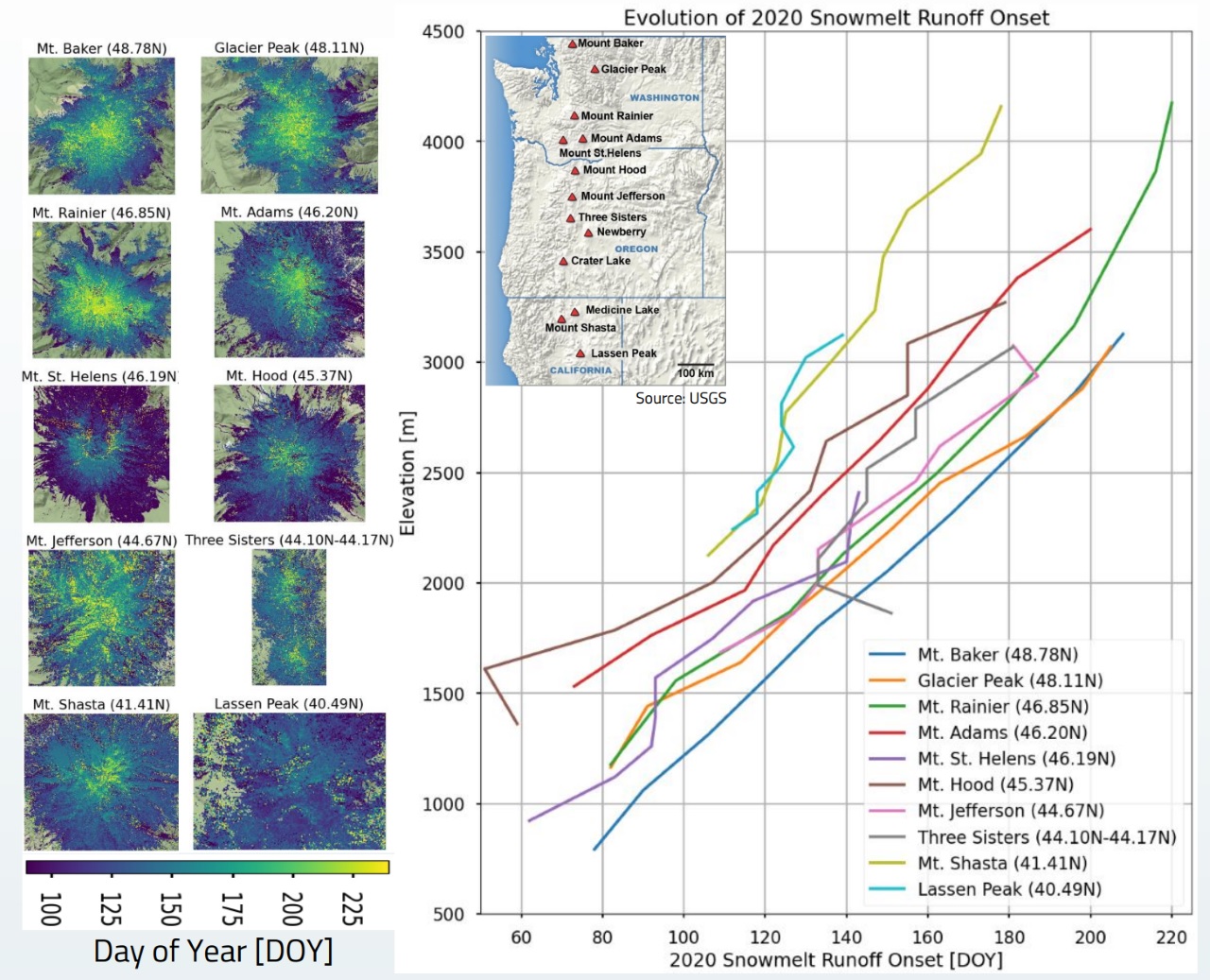Please join us for a UW Data Science Seminar event on Wednesday, April 12th from 4:30 to 5:20 p.m. PST. The seminar will feature two projects from our 2023 Data Science Incubator program: Cassia Cai and collaborator Jacob Cohen from the UW School of Oceanography, and Eric Gagliano, a PhD Student from the Terrain Analysis and Cryosphere Observation Lab.
Use this zoom link to join
“Characterizing the spatio-temporal evolution of marine heatwaves”
Abstract: Marine heatwaves (MHW) are discrete events characterized by periods of anomalously high sea surface temperatures (SSTa). MHWs can have significant ecological and socio-economic impacts, such as leading to algal blooms, habitat degradation, and loss in commercially valuable fisheries. In the last two decades, a number of high-profile MHWs, such as the Great Barrier Reef 2022, Mediterranean Sea 2003 and 2006, Tasman Sea 2015, Northwest Atlantic 2012, and Northeast Pacific 2013-2015, have occurred. In a warming world, MHWs are expected to be more frequent and more intense. In this project, we develop different metrics to understand the diversity of MHWs and a workflow that picks features to classify and find patterns in the spatio-temporal evolution of MHWs. This can help fill multiple knowledge gaps, such as our understanding of key MHW characteristics like distribution, variability, and trends, and the physical mechanisms that cause MHWs in different parts of the ocean.
Link to full Incubator project here.

“Leveraging large satellite archives to understand the timing and distribution of global snowmelt”
Abstract: Seasonal snow plays an essential role in the Earth system and more than 1/6 of the world’s population relies on runoff from seasonal snow and glaciers for agricultural and domestic water supply. Snowmelt timing has important implications for downstream water resource applications, flood risk management, and ecosystem maintenance. Snowmelt timing is often used as a common indicator of regional climate change: for the Western U.S., snowmelt timing is projected to advance earlier in the year by up to one month by 2050. The snowmelt runoff onset date dictates both the beginning of increased water availability and the rate of spring flow. High-resolution maps of snowmelt runoff onset date would enable more accurate water resource forecasting and regional climate analysis.
Link to full Incubator project here.

The UW Data Science Seminar is an annual lecture series at the University of Washington that hosts scholars working across applied areas of data science, such as the sciences, engineering, humanities and arts along with methodological areas in data science, such as computer science, applied math and statistics. Our presenters come from all domain fields and include occasional external speakers from regional partners, governmental agencies and industry.
The 2022-2023 seminars will be virtual, and are free and open to the public.
